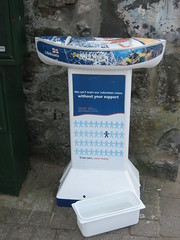How to Earn your Coin Collecting Merit Badge

How to Earn your Coin Collecting Merit Badge
There is more to coin collecting than just keeping coins. There is something at stake for those who make an effort to know what they are collecting: the Coin Collector’s Merit Badge.
A person who wants to acquire a merit badge must prove himself to be someone who knows a lot about coins.
Here are some of the things that a coin collector must know in order to earn the Merit Badge.
1. The Grading Scale
Merit badge aspirers must be very knowledgeable about the different grades of coins. They must master how to assess coins and categorize each coin as:
- Poor
- Fair
- Good
- Very good
- Fine
- Very fine
- Extremely fine
- Uncirculated.
They must also present five examples for each of the categories given above.
2. Coin Terminologies
Coin collectors must familiarize themselves to coin terms such as “encapsulated†coins, “proof†coins or legal tender to get the merit badge. They must be able to determine if coins are “buzzed†or “whizzedâ€.
They must also show competency in explaining the following:
- Clad
- Date set
- Observe
- Reading
- Reverse
- Type set
3. Coin Storage
For a coin collector to achieve a merit badge, it is important that he knows how to take care, store and preserve coins.
Coin collectors must be able to demonstrate thorough knowledge in coin collecting by showing the councilors different methods of coin storage. It is expected that the advantages and disadvantages of the methods will be provided as well.
4. Coin Anatomy
Knowledge of the parts of the coins will give important information. That is why coin collectors who want a merit badge must know where the mint marks are located in various coins and they must also know where to look for the initials of the coin designer.
5. Miscellaneous things about coins
The councilors will be very pleased to hear stories about what you have learned about coins. These recollections may come from reading coin journals, attending workshops or seminars, joining a coin collectors’ club, or visiting mint facilities.
It is also expected that coin collectors know a lot about coins from other countries as well.
6. Counterfeit coins
A coin collector must have a perception of whether a coin is authentic or counterfeit.
Reading coin guides or interviewing personnel from mint facilities will be a help in this situation.
After knowing these things, you are now equipped with the knowledge needed to be worthy of the coin collectors’ merit badge.
The consumer’s guide to coin collecting: Buying, selling, grading : satisfaction guaranteed
Price:
Find More Coin Collecting Articles
Related posts:
- Coin Collecting Must Know: To Earn the Merit Badge Coin Collecting Must Know: To Earn the Merit Badge Coin Collecting Must Know: To Earn the Merit Badge Free Online Articles Directory Why Submit Articles? Top Authors Top Articles FAQ...
- See the Way Canadian Coin Prices Flactuate to Earn Numismatists Fortunes See the Way Canadian Coin Prices Flactuate to Earn Numismatists Fortunes There are many different types of coins that can be used. These coins can be used in buying goods...
- See the Way Canadian Coin Prices Flactuate to Earn Numismatists Fortunes There are many different types of coins that can be used. These coins can be used in buying goods and in the field of coin collecting. Some of the coins...
- Coin Collecting Basics: your Own Coin Collecting Kit Coin Collecting Basics: your Own Coin Collecting Kit Coin collecting is not as simple as keeping coins: it may be observed from numismatists or even coin enthusiasts that it is...
- All About Coin Collecting All About Coin Collecting Here are the classifications of coins according to grade. 1. “Mint State” Coins This is equivalent to a value of 60 to 70 in the Shelby’s...

